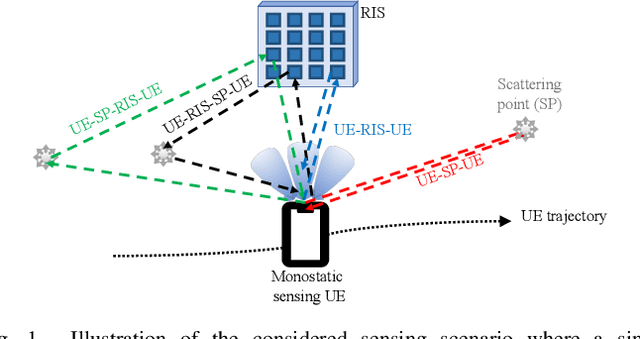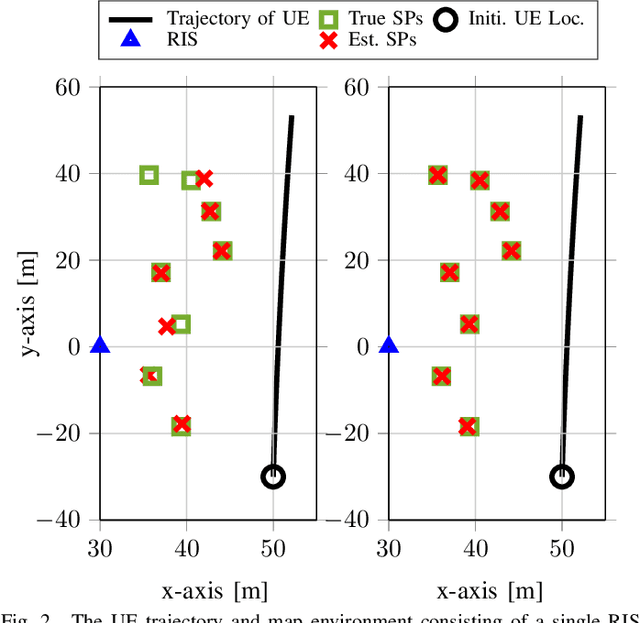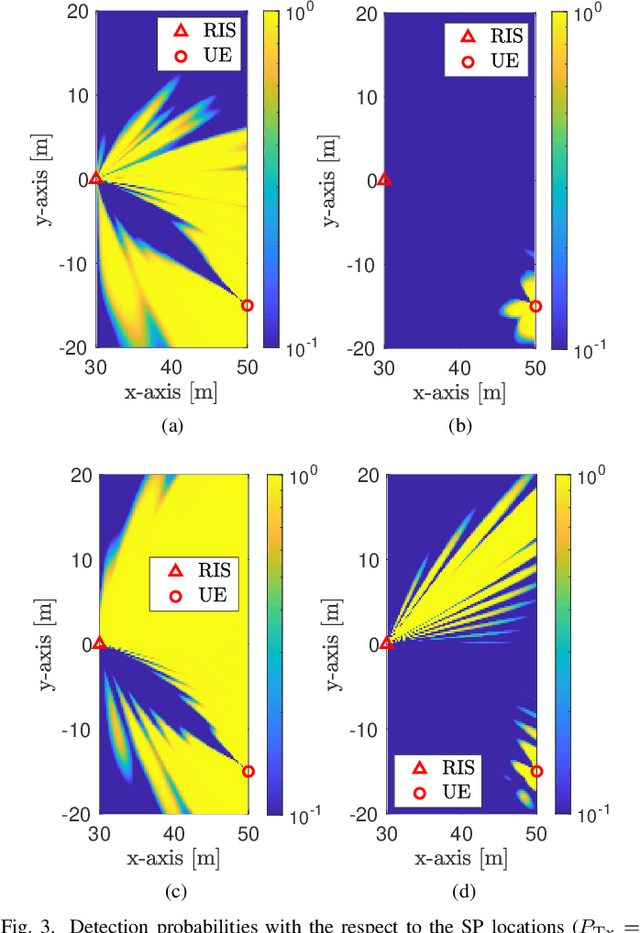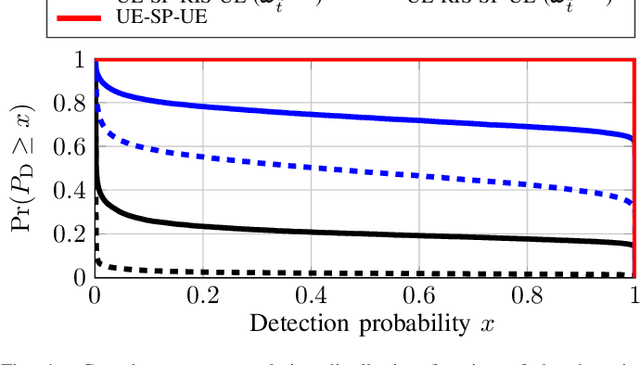RIS-Aided Radar Sensing and Object Detection with Single and Double Bounce Multipath
Paper and Code
Dec 14, 2022



We propose a framework for monostatic sensing by a user equipment (UE), aided by a reconfigurable intelligent surface (RIS) in environments with single- and double-bounce signal propagation. We design appropriate UE-side precoding and combining, to facilitate signal separation. We derive the adaptive detection probabilities of the resolvable signals, based on the geometric channel parameters of the links. Then, we estimate the passive objects using both the double-bounce signals via passive RIS (i.e., RIS-sensing) and the single-bounce multipath direct to the objects (i.e., non-RIS-sensing), based on a mapping filter. Finally, we provide numerical results to demonstrate that effective sensing can be achieved through the proposed framework.
 Add to Chrome
Add to Chrome Add to Firefox
Add to Firefox Add to Edge
Add to Edge